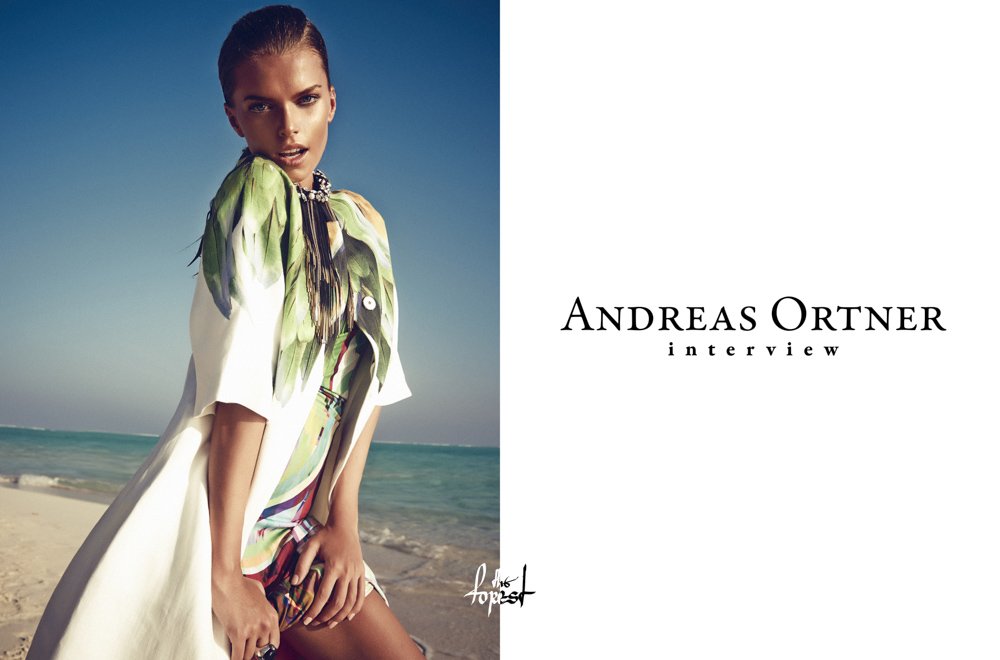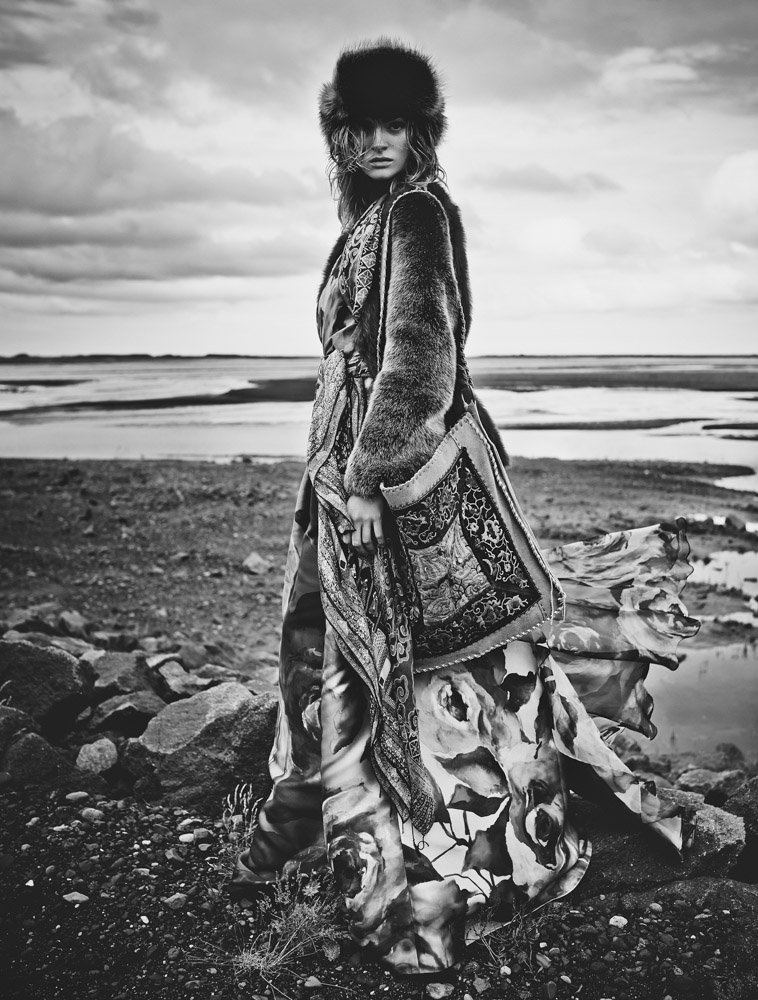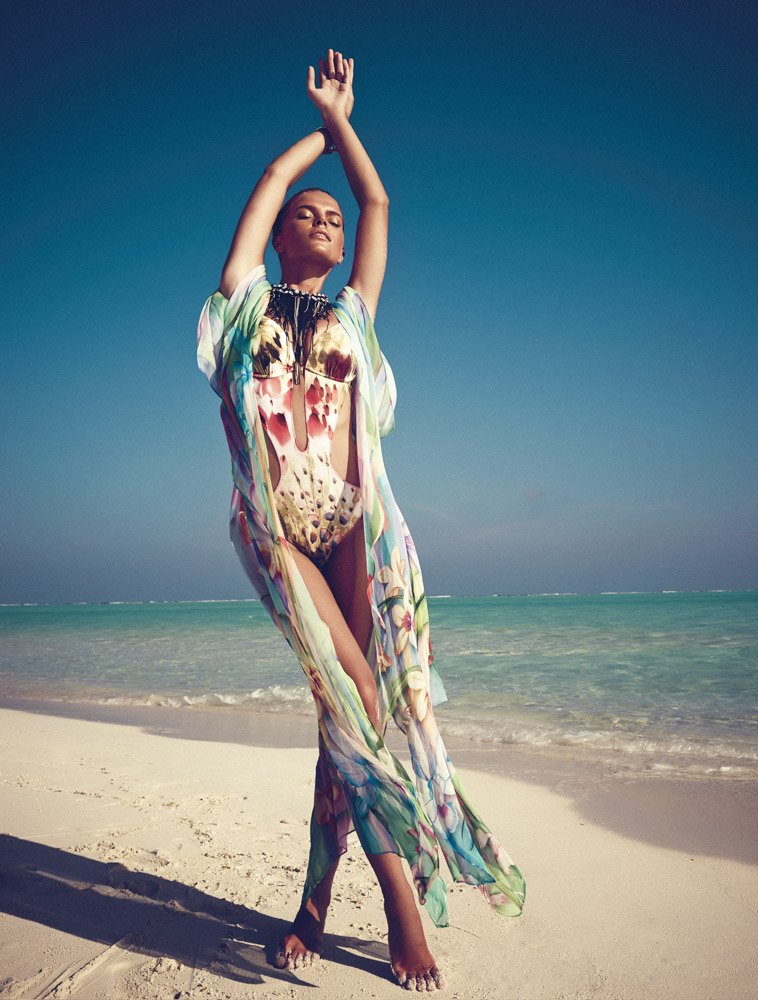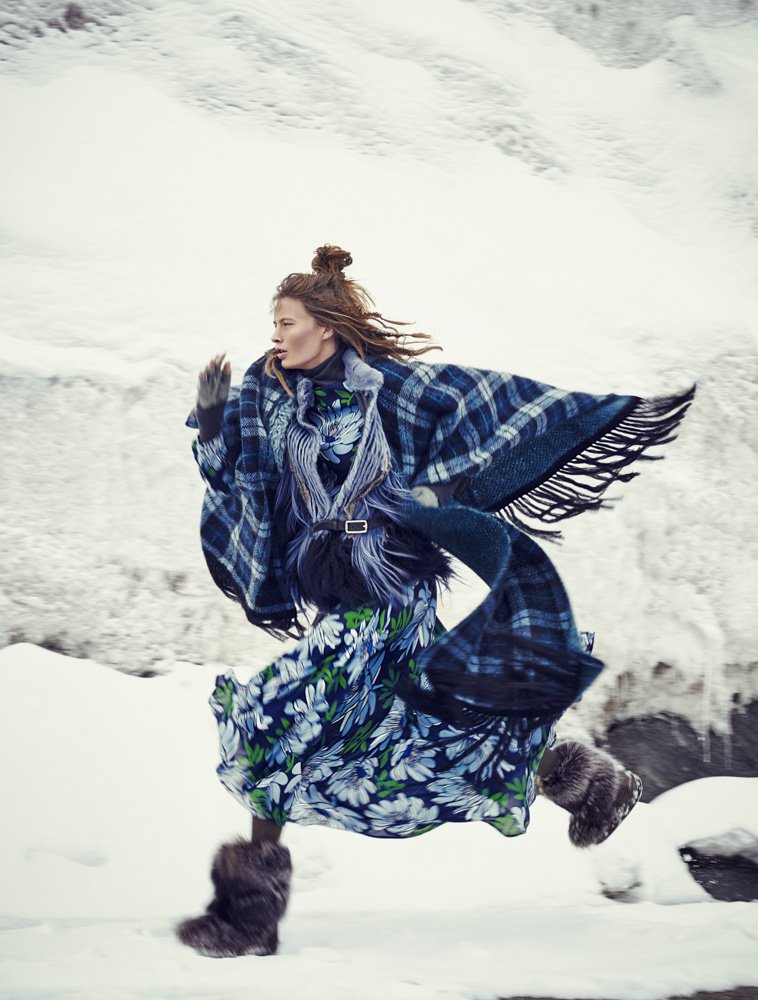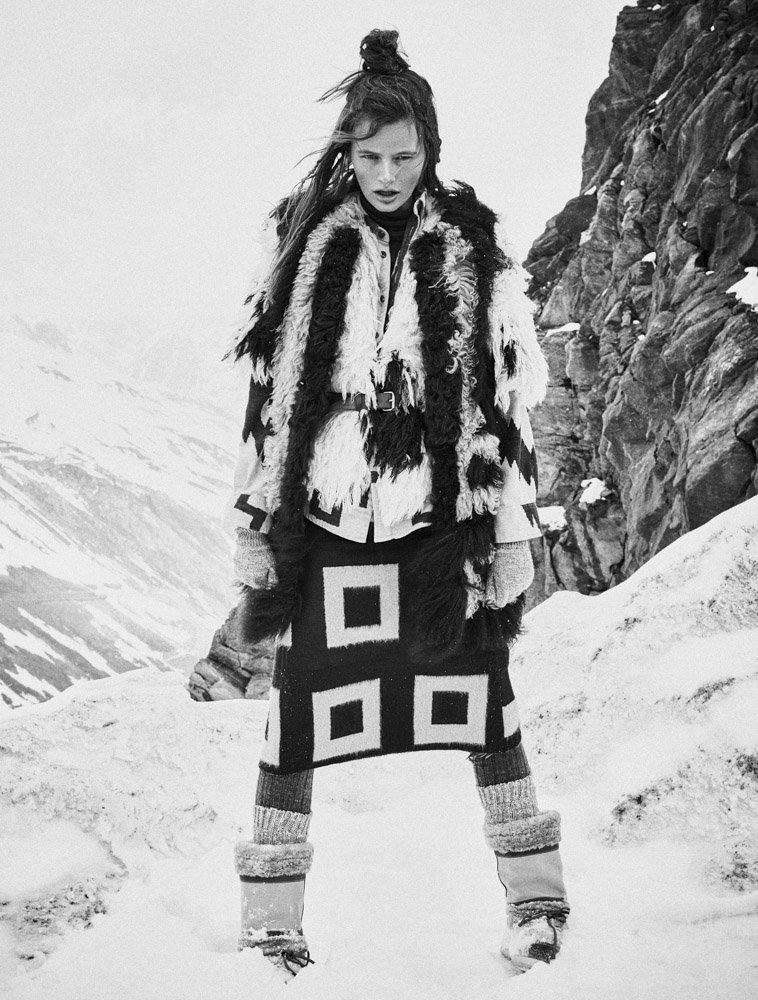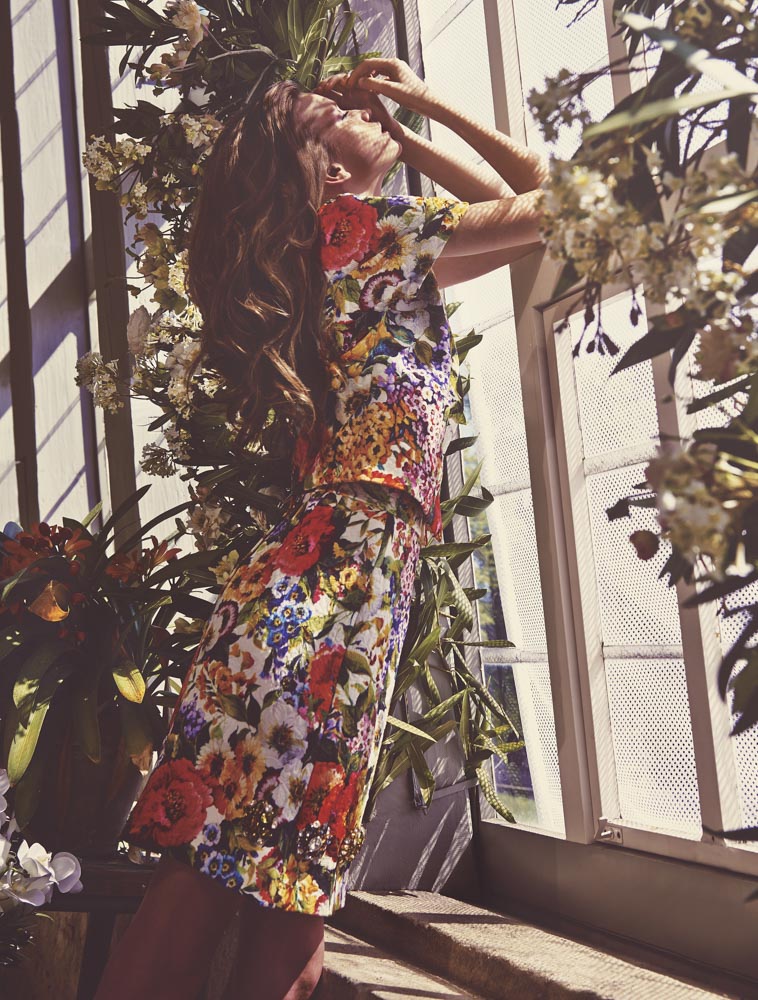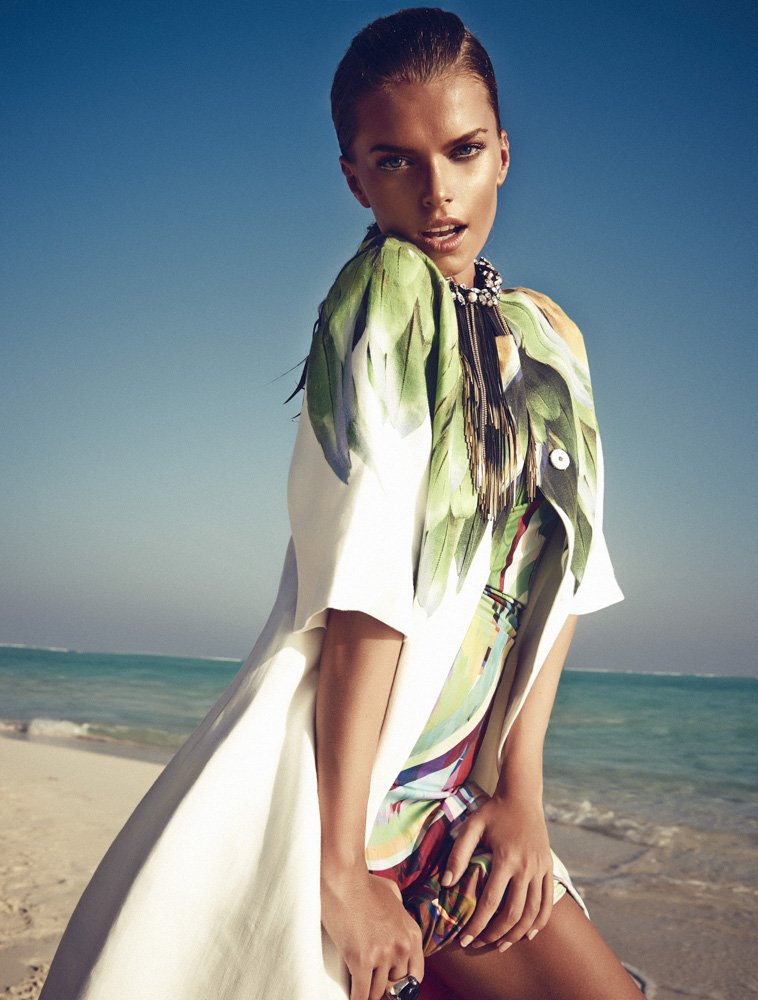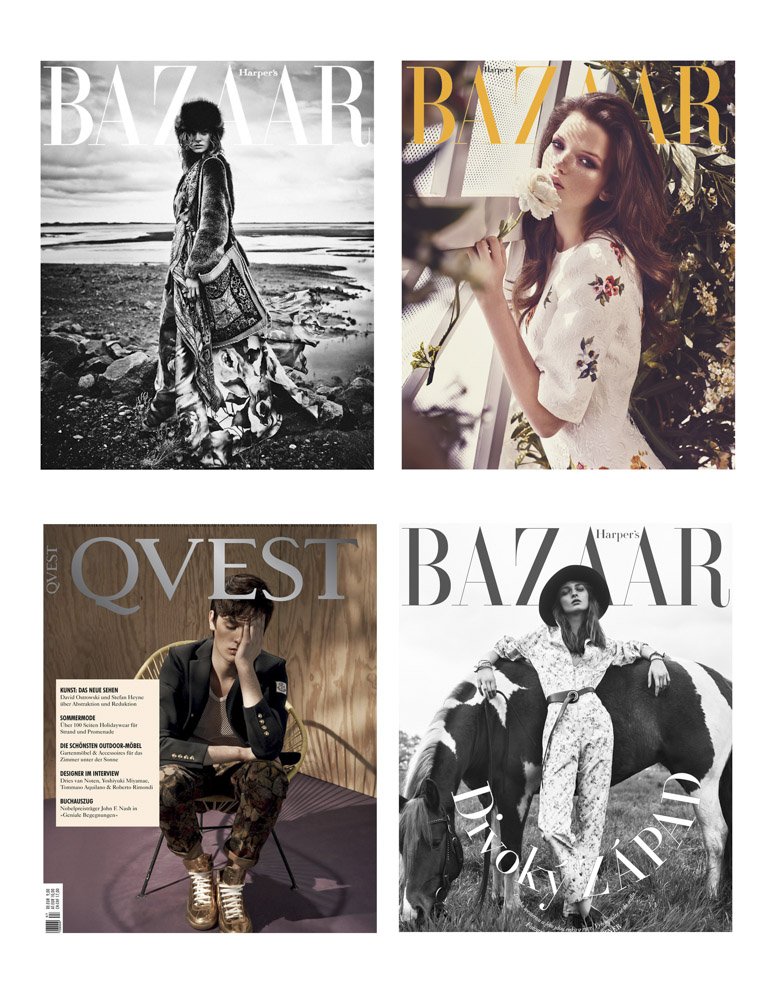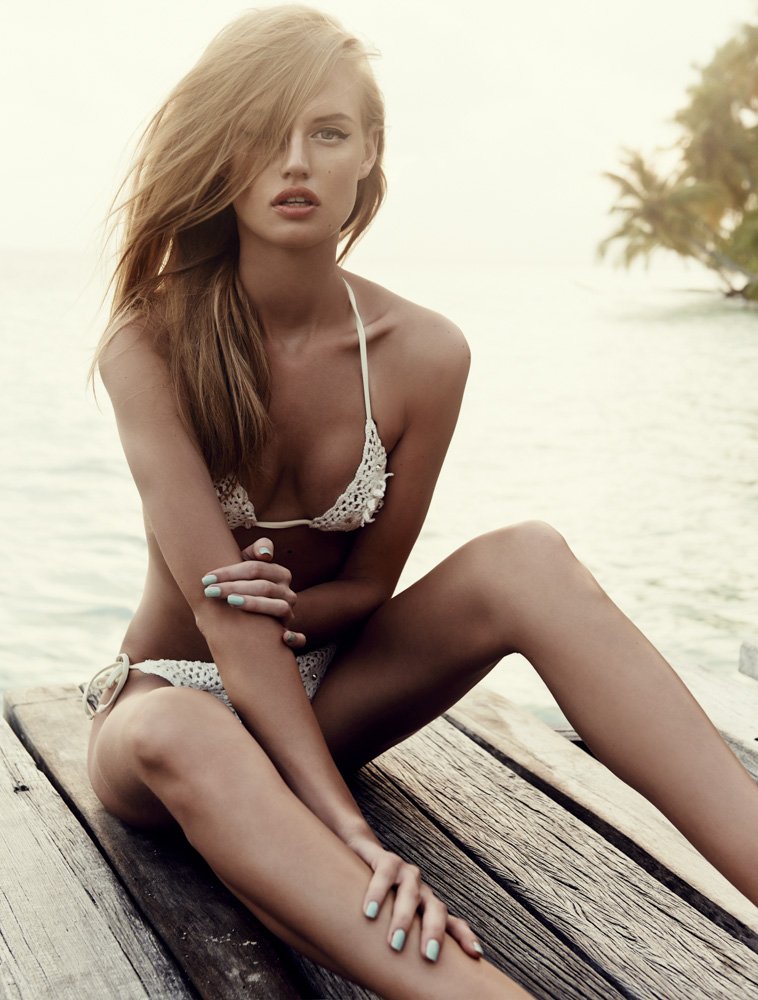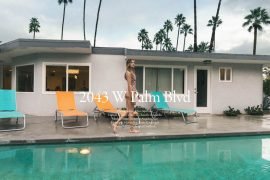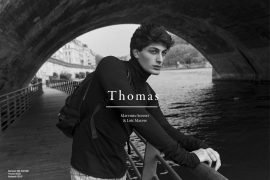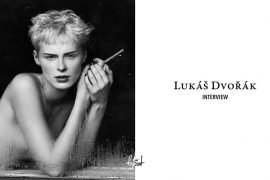With a career spanning over two decades and with experience both in front and behind the camera, Andreas Ortner has knowledge of the ins and outs of the fashion and advertising industry like few others. The Innsbruck born, Munich based artist, has travelled extensively throughout the US, Europe, Canada and Asia and has collaborated with many of the most prominent figures in the field. With a profound love for analogue photography and the technical discipline it demands, he creates timeless images with impeccable aesthetics.
Interview by Demetrios Drystellas
Describe Andreas in 3 words.
What do you love the most about photography and what do you seek when creating a picture?
I’m looking for the perfect moment out of a movement. I’m not a fan of posing and I let my models move a lot. What I love about photography is the creative process about it. Working with a team on the idea in order to create the perfect image.
Are there particular photographers that have influenced you?
I have always loved the old Master Paolo Roversi; I started with analogue photography and bought an analogue Pentax as my first camera in a flea market in Brooklyn.
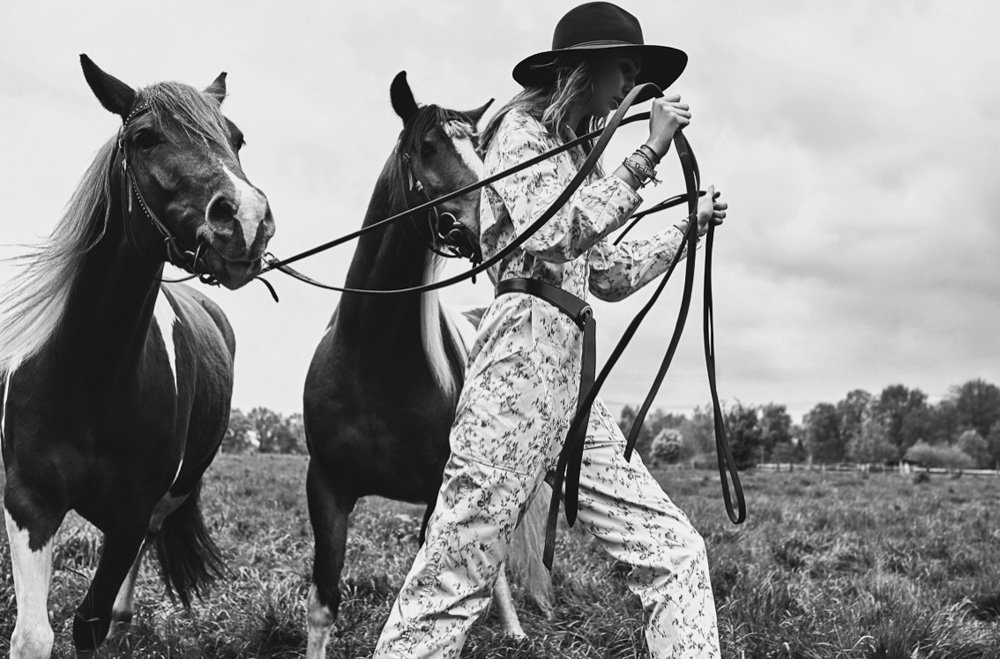
People in the creative industries can usually recall the moment it became clear that they want to be occupied with with they currently do. Was there such a defining moment for you?
When my first publication in Vogue magazine came out, I knew this was what I wanted to do for the rest of my life.
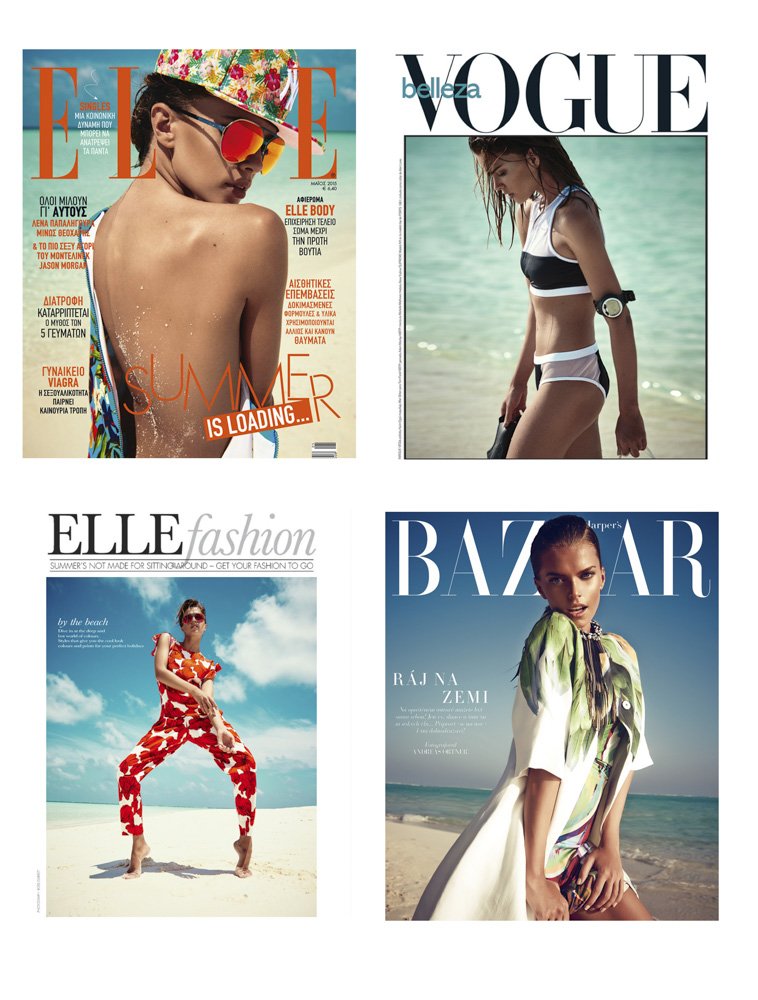 Before becoming a photographer, you had been modeling for over a decade. Is there anything that changed in the way you perceive the photographic session once you switched sides?
Before becoming a photographer, you had been modeling for over a decade. Is there anything that changed in the way you perceive the photographic session once you switched sides?
As model I worked with top photographers all over the world and found out that the best pictures came out of simplicity. Less is more.
Modeling has also helped me to get a feeling for the person in front of my camera. I understand how they feel, how it feels like to be on the other side of the lens.
Photography nowadays is very competitive and modeling too. Was it always so, or is market saturated today?
Back in the 90s, the market was a lot smaller. Less models and photographers meant less competition. True, over the years the industry became trendier than ever and everyone can become a model or appear on a Vogue cover if they have more than 100.000 followers on Instagram.
Also, photography became easier since it became digital. People don’t work as precisely to create the perfect image anymore. If you don’t like it, you just delete and try again. That’s why I’m still a fan of analogue photography, where you think before taking a picture.
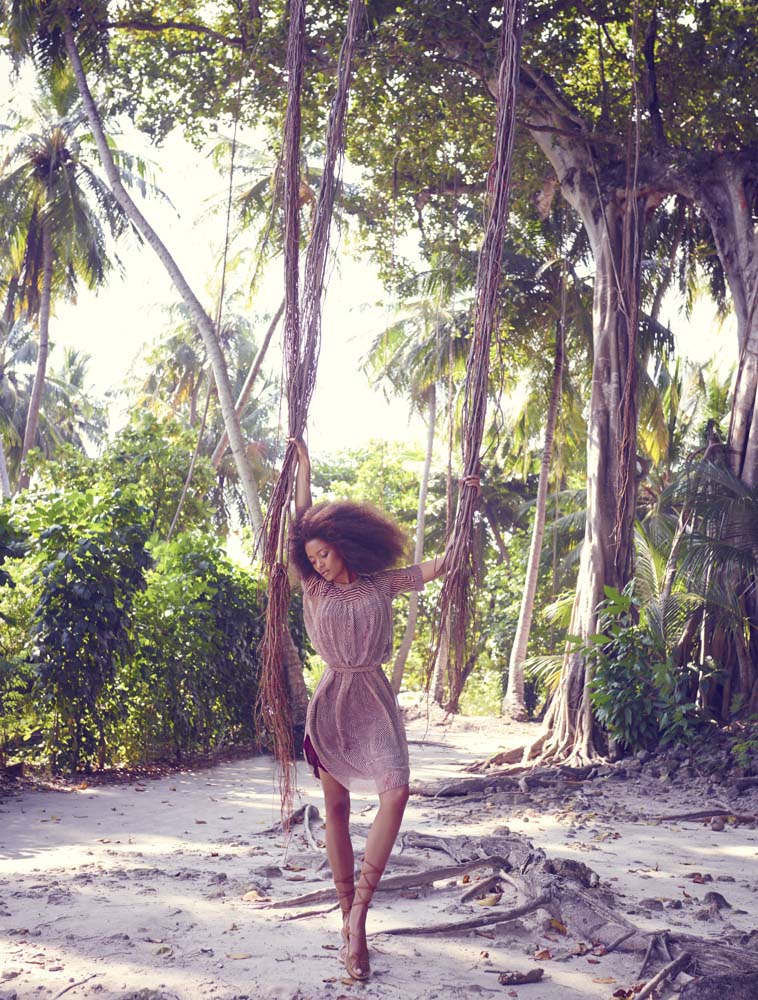
Was there a breakthrough moment in your career so far, that in retrospect changed you?
My first publication for Vogue Spain with a story I shot in Iceland 2 years ago. Things changed and my client list got better and better and also more international. I’m travelling with my team around the world since then.
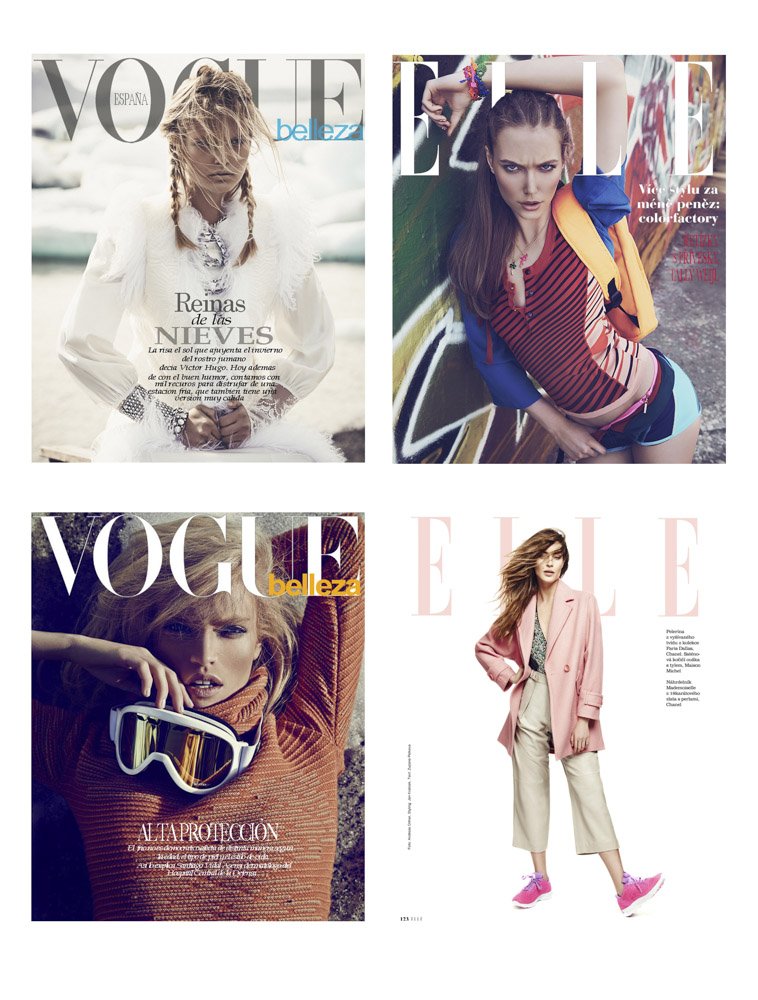 You started modeling in a period when retouching was minimal and shifted to photography in the crucial time when it became more and more demanded by the fashion industry.
You started modeling in a period when retouching was minimal and shifted to photography in the crucial time when it became more and more demanded by the fashion industry.
Back in the days a model with bad skin was send home from the set right away. I remember the time where retouchers still worked with watercolors and pencil on a printed picture. If you look at pictures of Kate Moss lately, she still looks like 25 since the retouchers make it happen. Thank God the trend moves away from over-retouched images and back to natural. I like this a lot more.
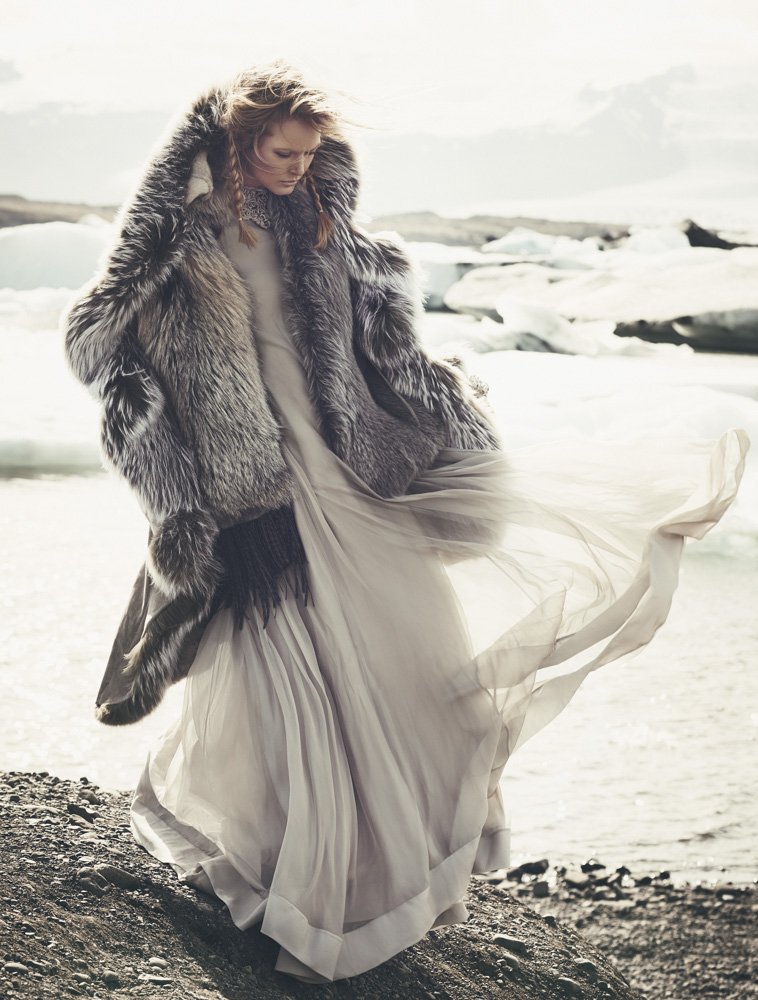
What is your most treasured possession?
What would you do if you knew you could not fail?
I’m not afraid of failing; it is part of the creative process.
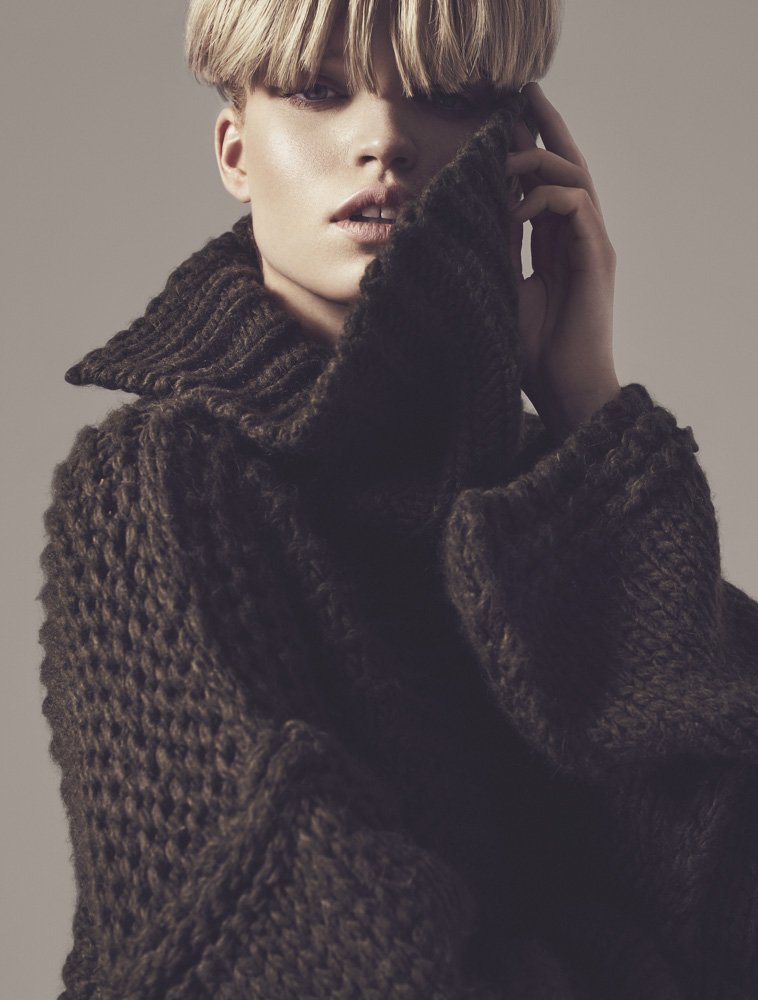
Is there a person that you admire the most?
I don’t really admire anyone since my life is wonderful. Well no, I do admire anyone who builds a career and still is healthy and happy with his family.
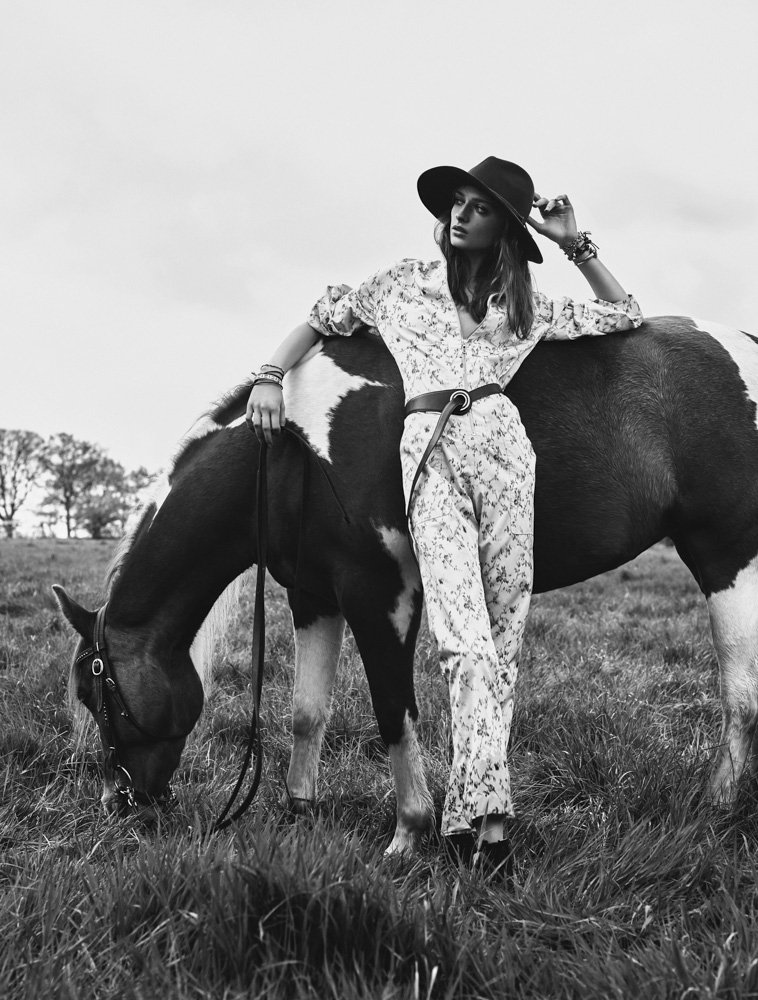
What is something we don’t know / wouldn’t guess about you?
I’m a super sensitive character.

Any interesting accounts from your experience in the fashion industry?
I have met Terry Richardson in his studio in New York a few years ago and found out that he is the nicest and sweetest person.
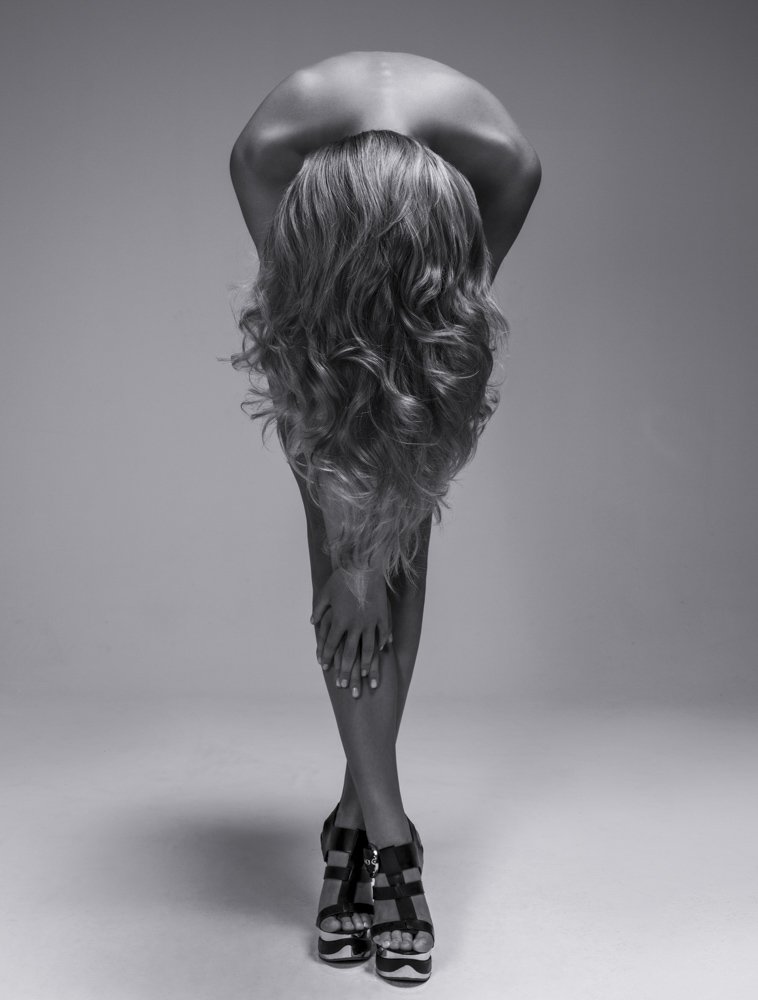
How do you select the models you collaborate with?
Since I have to go with trends, I’m always looking into models.com and see who are in the top 50 list. It’s important to work with them if you want to get recognized in the industry. I found out over the years that the top girls are the easiest to work with. Professionalism comes naturally. They are just nice people and don’t act with any attitude. Well, I guess I have been just lucky so far.
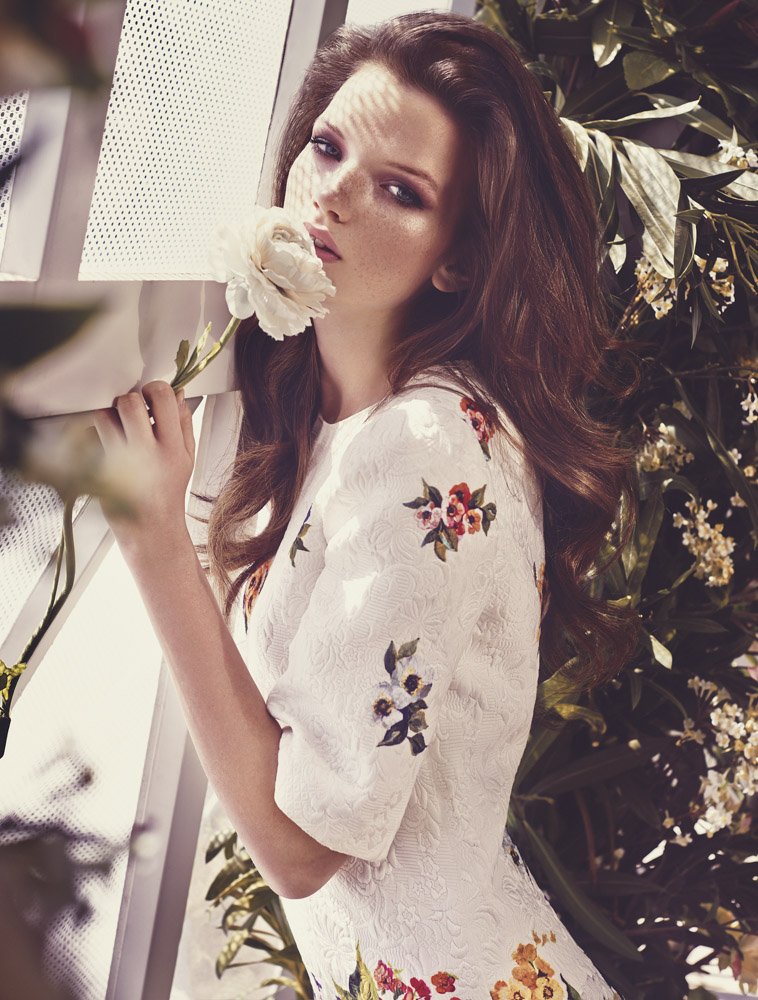
Do you ever get disappointed with photography?
I never get disappointed with photography, but I do with the industry itself. There is so much politics I have to fight with. When I didn’t have a name in the industry, it was almost impossible to get a good girl for my shootings. People wouldn’t even return my calls. Now where I’m standing, I get so much respect and everyone wants to work with me.
In these days I’m trying to give something back to the people that believed in me from the beginning on.
What are your thoughts on Instagram and the fast paced culture of social media?
It’s amazing how influential Instagram has become in the fashion industry.
I’m working more and more with fashion bloggers. Some of my big clients want to book bloggers instead of models. The influence these people have on the next generation is huge. The market has changed and I’m totally ok with that.
Good work speaks for itself I think, but to promote it has also become an important thing. To find the right mix and not to spend to much time on the social media channels is important.
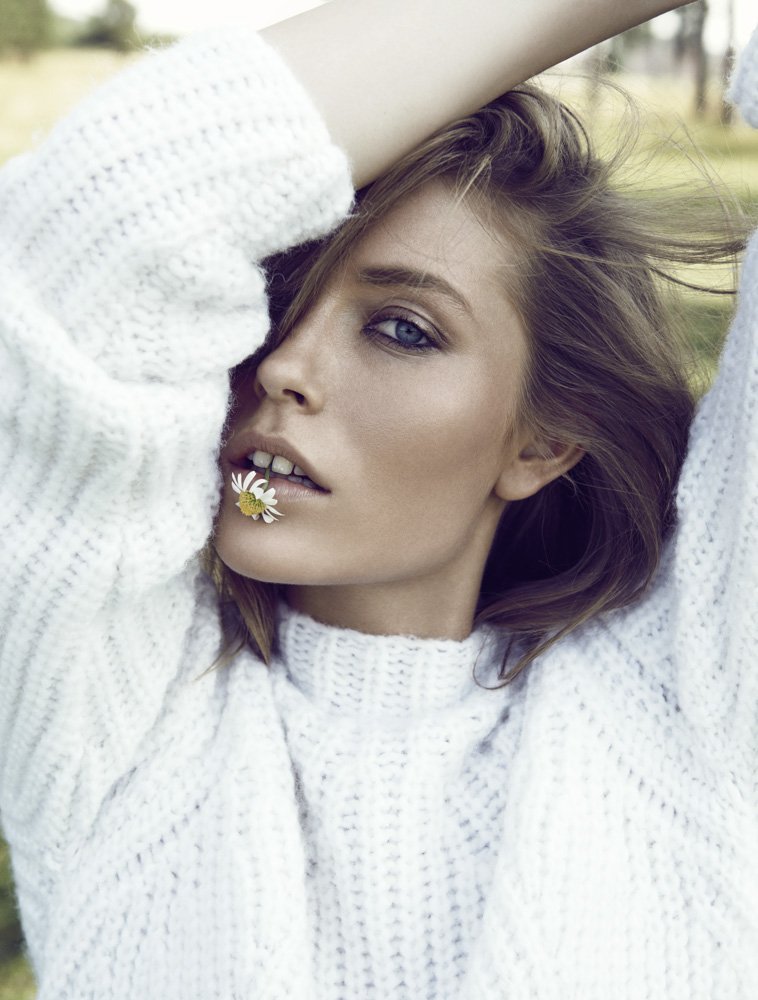
Are there any changes you would like to see in the fashion industry?
Changes happen all the time in the fashion industry. Sometimes I wish there would be fewer changes. Everything these days is expendable. Nothing lasts forever and we all have to be aware of it and make the best out of the moment.
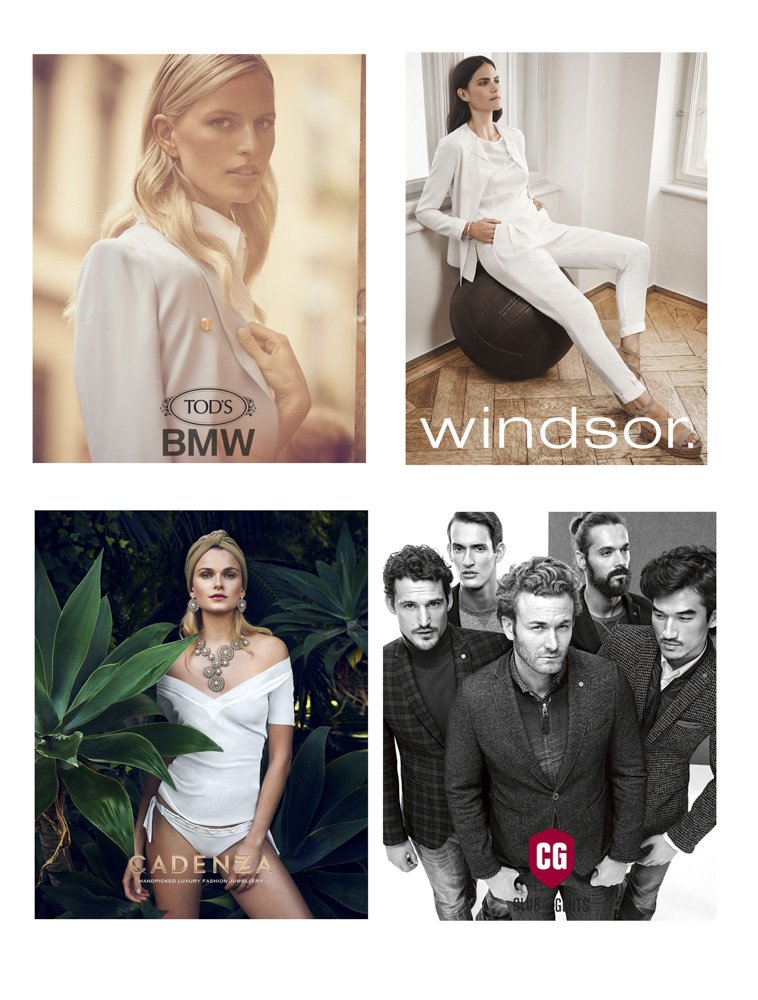
Advice to young people who want to become fashion photographers?
Always be aware that photography itself is just a small part of the creating part. The business itself requires so many skills. It starts from the art direction to production, dealing with the clients, promoting yourself. Basically it’s a 24/7 job to make it in the industry.
You can view Andreas’ work on his [website] and be sure to follow him on [instagram] and [facebook]

